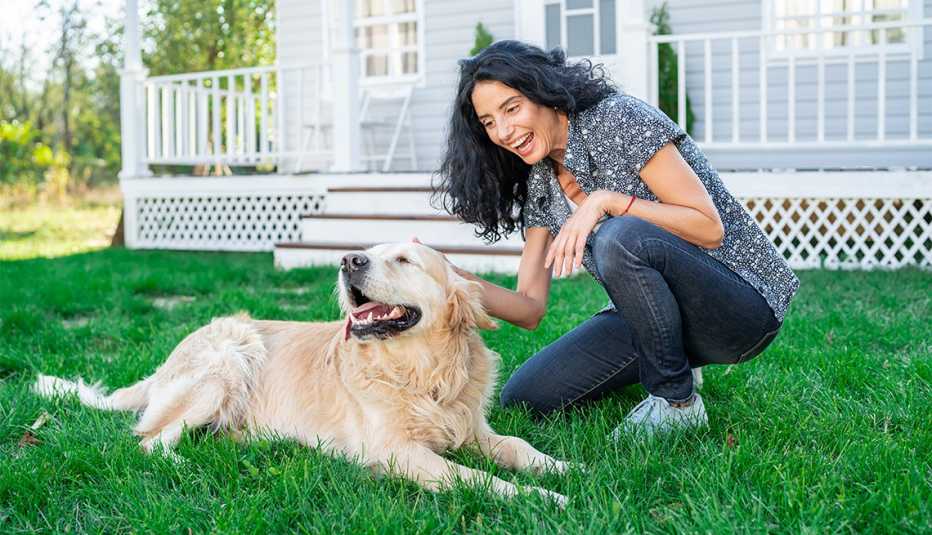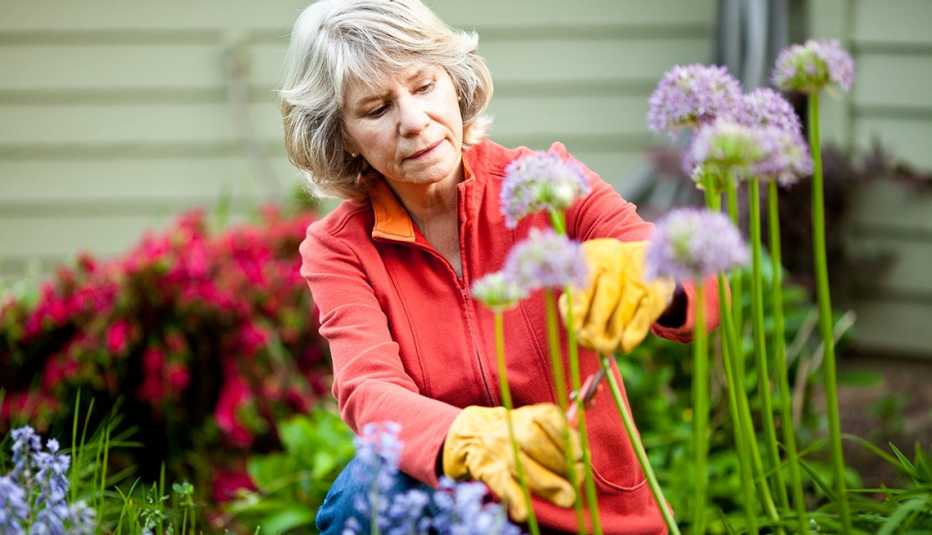AARP Hearing Center
Since she took up gardening 35 years ago, Toni Gattone has appreciated the joy of time spent outdoors tending to plants and growing her own food.
“This is so beneficial for us — mentally, physically, emotionally and spiritually,” says the 74-year-old resident of Marin County, California. Beyond exercise and fresh air, “when you’re out in the garden, you’re not thinking about what’s going on in the news. You’re thinking about that plant in front of you and what you can do to nurture it.”
As she got older, an arthritic back made some gardening chores painful for her. Rather than quit, Gattone adapted, as she details in her book, The Lifelong Gardener: Garden With Ease & Joy at Any Age. She redesigned her home garden, installing waist-high raised beds that enabled her to do her gardening without a lot of painful bending. To water her plants, she started using lightweight hoses that are less arduous to lift, and she switched to a thumb-controlled sprayer to lessen the stress on her hands from too much hard gripping.
With a little planning, most people can continue to reap the benefits of their backyard garden, even if they have disabilities or age-related declines in strength and endurance. A garden designed for accessibility and safety, special adaptive tools that compensate for physical limitations, a sensible gardening routine that manages exertion, and other safety and health measures can make gardening a healthy, rewarding lifetime pursuit.
The key is “to garden smarter, not harder,” says Pat Patterson, a master gardener who retired after working for 30 years for the Oregon State University Extension Service and still volunteers to help people learn adaptive gardening techniques.
Getting some advice from an expert at a local university or community program is a smart way to start. When Patterson is counseling older gardeners, she has them take a self-assessment questionnaire, which can uncover issues they need to work around — from hand or back problems to unfamiliarity with gardening tasks that might make them more vulnerable to injuries.







































































